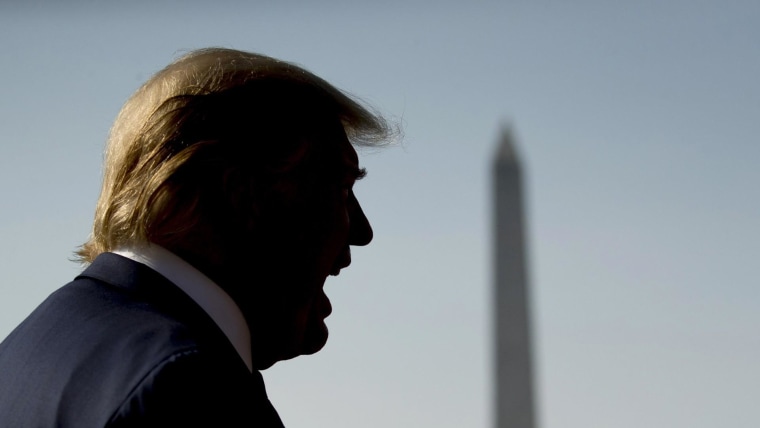Donald Trump made all kinds of strange comments at a White House event yesterday, but the Washington Post picked up on one of the presidential remarks that stood out the most for me.
President Trump said Wednesday that it would be "easy" for the United States to form new alliances if Syrian Kurds leave the fight against the Islamic State to fend off a Turkish attack, noting that "they didn't help us in the Second World War, they didn't help us in Normandy" and were only interested in fighting for "their land."
As the official transcript makes clear, a reporter reminded the president how critical the Kurds have been in the fight against ISIS, adding, "By allowing this offensive [against the Kurds by Turkey], is it going to be more difficult in future times of need to develop alliances?"
"No, it won't be," Trump replied. "It won't be at all. Alliances are very easy." It was part of this same answer that the Republican went on to complain about the Kurds not meeting his expectations during World War II.
The president seemed quite pleased with his ridiculous comments, publishing them to Twitter, and touting how "different" they were.
The problem, of course, is that the point of the reporter's question was right and Trump was wrong. As the United States abandons its allies in Syria -- based on a decision the president made on a whim, without any real policymaking process -- the world takes note, and our already damaged credibility suffers further.
"Alliances are very easy"? For countries that honor their commitments, stand by their allies, and demonstrate sound judgment on the international stage, maybe. But the current American president seems wholly oblivious to the challenges of creating and sustaining alliances in a time when our foreign policy is shaped by an erratic amateur who's too often confused between friend and foe.
Sally Canfield, a former aide to George W. Bush and Mitt Romney, wrote on Twitter yesterday, "So let me get this straight. Basically the President of the United States helped coordinate an attack on an ally."
It's the sort of thing that makes cultivating and maintaining alliances less than "easy."
In fact, ideally Trump would remove the word "easy" from his vocabulary altogether, because it's arguably the most dangerous he word he knows.
Trade wars, the president assured the public, are "easy." So is a military confrontation with Iran. So is getting China to fix North Korea. So is closing the border between the United States and Mexico. So is the Middle East peace process.
Trump never wants to be bothered with pesky details -- reading and attending briefings distracts from his television habits -- which is why he thinks every challenge is "easy" and "very simple."
As we've discussed, the result is a president who responds to deeply intricate challenges like he's the blowhard at the end of the bar who's convinced he knows the solution to every problem. Opiods? Let's just execute drug dealers. Immigration? Let's just built a wall. School shootings? Let's just arm teachers. Syria? Let's just get out of the way so Turkey can slaughter our Kurdish allies.
There's reason to cringe every time Trump uses the word "easy": it's too often tied to a complex policy dynamic that's anything but easy.
